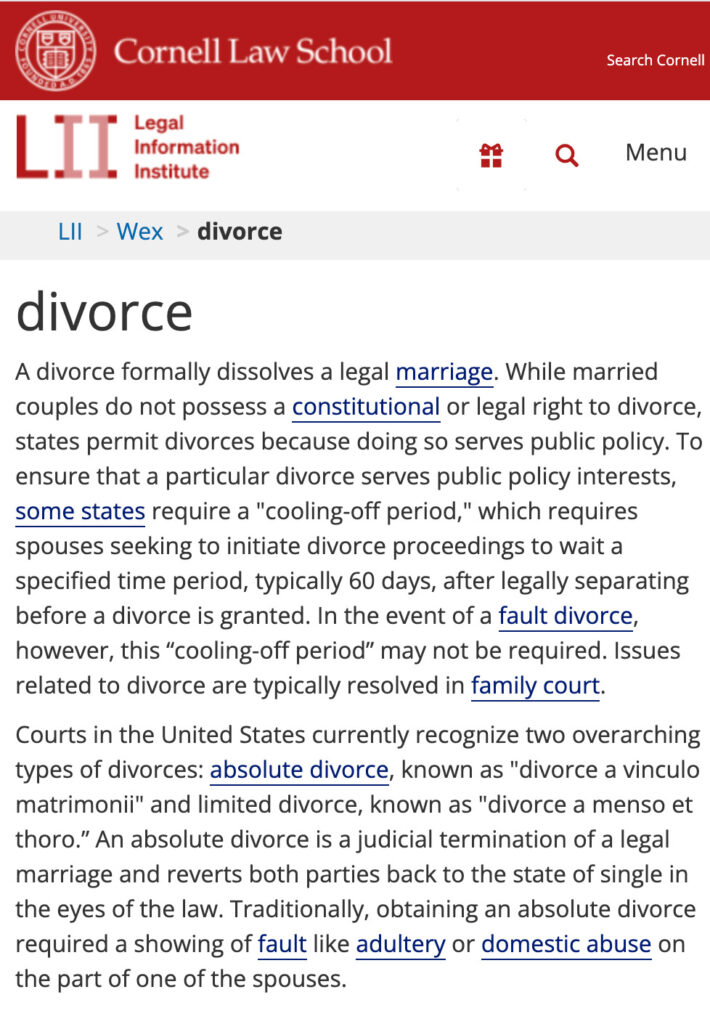Navigating Divorce Involving Business: Expert Tips
Divorce is a life-altering event that impacts various aspects of a person’s life, including financial stability, property division, and familial relationships. When a married couple owns a business together, the stakes are even higher, as illustrated by statistics showing that the divorce rate among entrepreneurs ranges from 43% to 48%, significantly above the average. This startling statistic underscores the complex interplay between divorce and business, making it a critical area for discussion and understanding.
This blog aims to delve into the intricacies of how divorce affects business owners, examining aspects such as the division of business assets, legal considerations, the role of a divorce attorney, and the continuation of business operations post-divorce. By exploring the impact on future business ventures and addressing frequently asked questions, this blog provides a comprehensive overview for those navigating the tumultuous waters of divorce in the business world.
Whether you’re a business owner undergoing a divorce or simply interested in the topic, this blog offers valuable insights into the unique challenges at the intersection of divorce and entrepreneurship.
Understanding Divorce and Businesses
Divorce is a legal process that dissolves the marriage of two individuals, and it often involves the division of assets and resolution of child custody and support matters. For couples who own a business together, the proceedings become more complicated. Understanding the implications of dissolution of a marriage on businesses, the treatment of businesses as marital assets, and the process of valuing businesses during divorce are essential aspects of navigating this challenging time.
This section will delve into the relationship between divorce and businesses, shedding light on the unique considerations involved in these cases.
The Implications of Divorce on Business Owners
Divorce can have significant financial implications on business owners, potentially impacting their financial stability and the future of their businesses. One of the primary concerns for business owners is the division of property. Determining how the business assets will be divided among the divorcing spouses can be a complex process, requiring the expertise of family law attorneys and financial professionals. Additionally, spousal support or alimony may come into play, further affecting the financial well-being of the business owner.
Navigating the divorce process as a business owner requires a thorough understanding of family law and the specific laws governing property division in the relevant jurisdiction. Consulting with a family law attorney who specializes in divorce cases involving businesses is crucial. These professionals can provide guidance on the legal implications of divorce on business ownership and help protect the interests of the business owner throughout the proceedings. By working closely with a knowledgeable attorney, business owners can ensure a fair distribution of assets and mitigate any potential negative impacts on their businesses.
Additionally, business owners should consider gathering a comprehensive overview of the financial aspects of their businesses, including detailed financial statements, tax returns, and information on the business’s value. These documents will be essential during the property division process and the valuation of the business.
The Role of Business in Marital Assets
In the context of divorce, businesses play a crucial role in determining marital assets. Understanding how businesses are categorized in asset division is essential. The ownership of a business holds significant importance in reaching fair divorce settlements. Businesses are treated as marital property, influencing overall asset distribution. Moreover, the valuation of a business greatly impacts how marital assets are divided, making it a vital aspect to consider in divorce proceedings.

Meet Family Law Lawyer
Catherine J. Navarro
Partner
Valuing Business During Divorce
Determining the worth of a business amidst divorce proceedings can be complex. Valuation methods vary, considering factors like assets, revenue, and market conditions. Business value influences property division and financial support decisions, impacting both parties’ post-divorce financial stability. Professionals assess valuation methods based on specific grounds outlined in state divorce laws, ensuring a fair evaluation before reaching a final resolution. Seeking expert guidance during this critical stage can help navigate the process efficiently and protect your interests for a smoother transition.
Methods for Business Valuation in Divorce Cases
In the process of valuing businesses during divorce, various methodologies come into play. Financial experts play a crucial role in assessing the value, utilizing income-based and asset-based approaches. Evaluation extends to intangible assets like goodwill, requiring a thorough analysis. Additionally, market trends significantly impact how businesses are valued amidst divorce proceedings.
When valuing businesses during a divorce, the California Secretary of State’s online services offer vital data on business entities, aiding financial experts in applying income-based, asset-based, and intangible asset valuations. This comprehensive information supports a nuanced valuation process, considering market trends and the business’s legal and financial status. Access this resource at the California Secretary of State’s business entities section for detailed insights.
Factors Influencing Business Valuation
Factors affecting the valuation of a business in divorce include market conditions, industry trends, asset depreciation/appreciation, future earning potential, and economic factors. Understanding these aspects is essential as they determine the worth of the business during the divorce process. Market fluctuations, industry performance, and the long-term financial outlook play significant roles in evaluating the business accurately. Additionally, considering how assets may depreciate or appreciate over time and forecasting future earnings are vital components in determining the overall value of the business in a divorce settlement.
Division of Business in Divorce
Courts determine the division of business assets in divorce based on various factors. Protecting your interests during this process is crucial. Strategies for fair business asset distribution can involve expert valuations and legal support. Ensuring a just outcome requires understanding how courts assess and allocate business assets.

How Courts Divide Business Assets
In the process of dividing business assets during divorce, courts consider various criteria to ensure a fair allocation. Legal standards guide the division, applying equitable distribution principles. Factors like financial contributions, future earning potential, and existing agreements influence court decisions. Balancing fairness and practicality, courts aim to divide businesses in a manner that upholds the interests of both parties involved. This careful approach reflects the professionalism and care taken by the legal system in handling complex business asset division cases.
Protecting Your Interests in Business Division
In the process of divorce, it is vital to implement strategies to protect your business interests effectively. Understanding the legal options available to safeguard your business assets is crucial. Taking proactive steps can help secure your stake in the business. Utilizing negotiation skills to ensure a fair division of business assets is essential. Navigating conflicts over business ownership during divorce proceedings requires careful consideration and professional guidance.

Legal Considerations When Divorcing with a Business
Navigating legal aspects when divorcing with a business involves understanding property division laws. Consider factors like child support, financial support, and division of property during the process. Familiarize yourself with specific grounds for divorce, waiting periods, and residency requirements based on your state’s laws. Seek legal advice to ensure proper handling of dissolution proceedings, including collaborative divorce or court orders. Protect your interests by comprehending the implications of fault divorce, uncontested divorce, and any temporary orders issued by family courts, following the general format of the divorce process.
Common Law Property vs Community Property
In the realm of property ownership, there exist legal disparities between common law and community property regulations. Community property states adhere to specific rules governing asset distribution, while common law property states maintain distinct guidelines for property rights. Understanding these differing property laws becomes paramount during divorce proceedings. Seeking guidance from a family law attorney can offer clarity on concerns related to property ownership.
Marital Property vs Separate Property
When going through a divorce, it is crucial to differentiate between assets obtained during the marriage and individual properties. Marital assets encompass possessions acquired jointly throughout the marriage, while separate assets consist of those gained before marriage or through inheritance. Understanding this disparity is essential for the fair division of assets. Legal experts specializing in family law can offer valuable assistance in discerning between marital and separate properties.
The Role of a Divorce Attorney
Navigating the complexities of divorce, a divorce attorney plays a pivotal role in providing legal guidance and support. They tackle a range of issues, from child support and property division to navigating the emotional upheavals, ensuring you’re not alone in this challenging time.
Whether it’s a fault divorce, an uncontested separation, or court proceedings, attorneys are there to guide you, aiming for resolutions that respect everyone’s interests. Their expertise extends to collaborative methods and dispute resolution, aiming for mutually beneficial agreements.
The role of a divorce attorney is crucial, especially in safeguarding your rights and interests in delicate matters such as child abuse. They are your advocates, ensuring that your voice is heard and your rights are protected throughout the legal process.
When to Hire a Divorce Attorney
Seeking legal counsel is crucial during complex divorce scenarios, avoiding costly errors and safeguarding rights. Attorneys offer vital support in navigating child custody issues and maintaining interests during the process. Early consultation ensures a smoother transition through divorce proceedings, especially when facing child support matters.
How a Divorce Attorney can Assist in Business Division
Navigating the complexities of business division during divorce can be challenging, but with a skilled divorce attorney by your side, it becomes more manageable. Attorneys offer specialized guidance on dividing business assets, ensuring fairness in valuation and distribution. Their legal expertise safeguards your business interests and advocates for equitable outcomes. A dedicated attorney can skillfully negotiate favorable terms, providing the support and protection you need during this critical time.

Post-Divorce Business Operations
Navigating post-divorce business operations can be challenging. Managing the business after divorce is crucial, requiring strategic planning and clear communication. Addressing potential challenges proactively can help smooth the transition and ensure the continued success of the business. Embracing solutions tailored to the new circumstances is essential for stability and growth in this phase. By effectively managing post-divorce business operations, individuals can uphold their professional commitments while adapting to personal changes.
Managing Business After Divorce
After a divorce involving business, a clear plan for post-divorce business management becomes essential. Collaboration and transparency are key for success, alongside effective communication and teamwork to maintain operational continuity. Business restructuring may be needed to accommodate new ownership arrangements, while professional support can help navigate the complexities of managing the business after divorce.
Potential Challenges and Solutions
In navigating post-divorce challenges, proactive solutions are key. Financial disputes and operational conflicts can emerge, requiring resolution. Collaborative problem-solving through mediation offers effective dispute settlement. Seeking guidance from professionals enhances challenge management. Clear strategies and agreements help minimize post-divorce complexities, fostering smoother transitions.
How Can a Divorce Impact Future Business Ventures?
Assessing the influence of divorce on future business endeavors is crucial. The outcomes can affect expansion and investment decisions, guiding strategic planning. Post-divorce legal considerations shape growth opportunities, requiring professional consultation for risk management and maximizing post-divorce potential.
Bottom Line
For business owners navigating the turbulent waters of divorce, understanding the ramifications on your business is paramount. Ensuring your business is appraised accurately and grasping how assets are divided in court is crucial for protecting your interests. Key legal factors, including the nature of your assets and the wisdom of enlisting a seasoned divorce attorney, are pivotal in this process.
Beyond the divorce, steering your business through potential post-divorce challenges is essential. Bear in mind, the manner in which you handle your divorce can cast long shadows or pave the way to future business success. Approach this critical juncture with the right blend of knowledge and strategic thinking to ensure not just survival, but prosperity.
Frequently Asked Questions
Q: What are some common ways that businesses are handled during a divorce?
A: Handling businesses during divorce includes options like buyouts, continuing co-ownership, selling the business with profit division, or court-ordered sales. These methods offer solutions for separating business assets amicably or through legal intervention.
Q: How can a business valuation impact divorce proceedings?
A: Business valuation plays a pivotal role in divorce proceedings by determining the business’s worth. Its impact spans asset division, spousal support, and financial settlements. Hiring a professional valuator ensures accuracy amidst complexities involving assets, liabilities, cash flow, and market conditions.
Q: Are there any strategies for protecting a business in case of divorce?
A: Strategies for safeguarding a business in divorce include drafting pre-nuptial or post-nuptial agreements, maintaining separate financial records, establishing buy-sell agreements with partners, and seeking guidance from a family law attorney for legal protection options.
Q: What role does a forensic accountant play in business valuation during a divorce?
A: A forensic accountant contributes to business valuation in divorce by analyzing financial data meticulously. They delve into assets, liabilities, and records for accurate valuation. Their expert testimony in court ensures fairness in dividing business assets during divorce proceedings.
